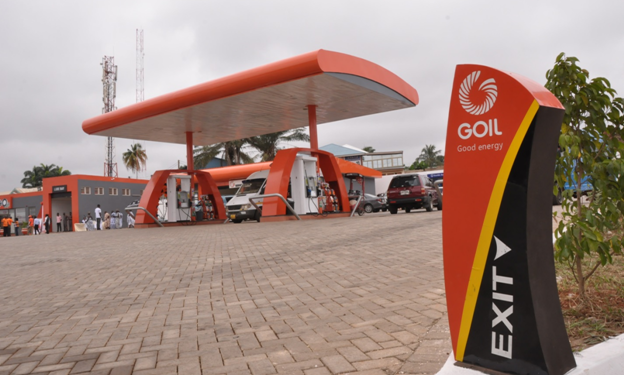
In a strategic move aimed at diversification and infrastructure support, Ghana’s leading oil and gas marketing company, GOIL PLC, has entered the West African bitumen market. This expansion comes as part of the company’s concerted efforts to broaden its product portfolio and make a substantial impact on regional infrastructure development.
GOIL’s bitumen production journey began in the final quarter of 2022 with the successful construction of a state-of-the-art bitumen terminal and production facility situated in Tema, Greater Accra Region. Valued at a substantial US$45 million, this significant project is a result of a collaborative venture between GOIL PLC and Société Multinationale de Bitumes (SMB), hailing from Côte d’Ivoire.
The facility’s core offerings encompass innovative bitumen products, including the highly sought-after polymer-modified bitumen (PMB) and bitumen emulsion, geared towards meeting the region’s growing infrastructure demands. Notably, the facility boasts a production capacity of approximately 7,500-8,000 metric tonnes annually for both polymer-modified bitumen and bitumen emulsion.
GOIL’s ambitions extend beyond immediate market entry, as articulated by Mr. Kwame Osei-Prempeh, Group Chief Executive Officer and Managing Director of GOIL PLC. The long-term vision encompasses establishing an independent bitumen processing plant within Ghana’s borders, positioning the company as a formidable competitor in the West African bitumen market. This strategic move not only bolsters their market position but also underscores GOIL’s commitment to sustainability and quality, as they offer the unique advantage of producing PMB and Emulsion.
Polymer-modified bitumen (PMB) takes center stage in GOIL’s product portfolio, with the incorporation of the styrene-butadiene-styrene (SBS) polymer, renowned for its prowess in mitigating pavement issues such as rutting, fatigue cracking, and low-temperature cracking.
The genesis of GOIL’s foray into bitumen production traces back to a pivotal meeting with the Ghana Highway Authority in 2017. The revelation that Ghana planned to revamp approximately 10,000km of roads and construct new highways and urban roads over seven years prompted GOIL’s proactive response. Recognizing the substantial demand for bitumen, the decision to construct a bitumen plant was aligned with the nation’s infrastructure aspirations.
The partnership between GOIL and SMB has been a cornerstone of this venture. With GOIL holding a 60 percent ownership stake in the partnership and SMB responsible for the supply of raw bitumen material, this collaboration has facilitated a seamless supply chain. Notably, GOIL’s exclusive ownership of PMB and bitumen emulsion production positions them as leaders in the value chain.
In line with GOIL’s diversification strategy, the bitumen project will operate as an autonomous subsidiary, mirroring the success of their fuel import subsidiary, Goenergy. This approach enables GOIL to expand its market presence while offering a broader product lineup.
The impact of GOIL’s bitumen production endeavor extends beyond market entry. By producing locally, the company stands to save the country millions of dollars spent annually on bitumen imports. Furthermore, supporting locally-produced bitumen contributes to reducing foreign exchange dependence and underscores GOIL’s commitment to driving domestic economic growth.
Presently, Ghana imports bitumen from Côte d’Ivoire and Brazil for road projects, but with GOIL’s entry into the market, the dynamics of bitumen supply in West Africa are poised for a transformation.
GOIL PLC’s strategic move into the West African bitumen market marks a significant milestone in the company’s diversification journey. Their commitment to innovation, sustainability, and infrastructure development positions GOIL as a pivotal player in reshaping the regional bitumen landscape while bolstering Ghana’s economic resilience.
Source: Norvanreport

